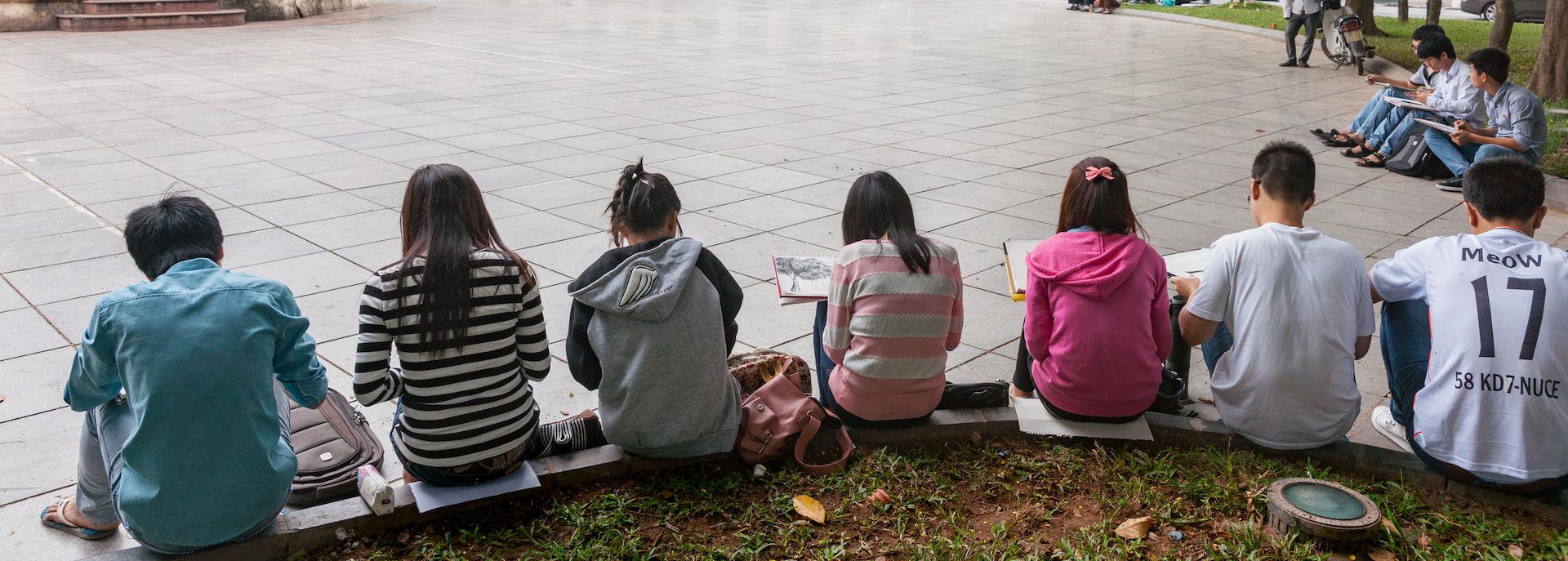

Covid-19 is erecting further barriers to girls’ access to education in many countries with negative socio-economic consequences. Private companies can lead the way in reversing this trend, boosting economic growth and social wellbeing.
Around the world, Covid-19 has temporarily forced schools to close and pupils to stay at home, but in many countries some female pupils won’t ever return. According to UNESCO, 130 million girls were out of school worldwide even before the coronavirus struck, but the pandemic will likely see another 11 million girls hang up their school bags and textbooks for good. This will adversely impact their futures and their countries’ economic recoveries. While the challenge to reverse this trend is enormous, so is the opportunity and private sector companies have a major role to play.
The economic and social cost of inaction
Girls’ access to education is especially impeded in low-income countries – where 85% of girls don’t complete secondary education – but it’s these countries that stand to benefit most from taking decisive action.
According to an October 2020 report by Citi and Plan International, emerging economies can boost their GDP by an average of 10% by 2030 if they invest less than a cup of coffee per day (USD 1.53) so that girls finish secondary school. Not only is it the right thing to do, says the co-author of the report, Citi Global Insights analyst Ying Qin, but “it’s also the smart thing to do, because it delivers unparalleled returns across economies and societies”.
From an economic perspective, for example, the World Bank estimates the global economy would receive a USD 15-30 trillion uplift if every girl completed 12 years of education. Socially, educational attainment also tackles the complex combination of social inequality, pregnancy, violence and forced marriage that prevent many girls in low-income countries from entering the workplace and living a healthy economically independent life. For instance, the UN Children’s Fund states that one-fifth of women globally are married before their 18th birthday, but this figure drops by 64% if the woman has completed 12 years of education.
As Ying succinctly notes: “education is certainly the key to unlocking girls’ potential.”
What needs to be done?
There is no silver bullet to bulldozing the socio-economic barriers that girls face and therefore a holistic approach combining multiple actors, interventions and stages is required. The Citi report states that “investments and interventions are needed in the areas of health, education, violence and economic independence” in order to be successful, while they “also need to take place over the course of a girl’s life in order to break down the evolving barriers that she faces as she grows.” That’s because the gender gap gradually expands as people get older – like a river of inequality growing from source to estuary.
What’s more, collaboration underpins successful intervention. While much of the attention focuses on governments – the ability to pass laws such as a minimum age for marriage and implementing gender-focused education policies, for example – local communities, NGOs and private sector companies all have a vital role to play.
What can the private sector do?
The private sector is well-suited to making a difference through additional capital, social initiatives and internally through gender-equal company policies. For instance, “companies can provide expertise, access to products and services, as well as funding for programmes such as infant nutrition, STEM initiatives for girls and financial literacy programmes,” says Ying. Meanwhile, “companies can also support girls and young women in their career development through outreach, placements and mentorship programmes, helping them acquire visibility, skills and access to job opportunities,” Ying adds.
It is a challenge that Wärtsilä’s HR Business Partner in East Africa, Shirley Chemmuttut, knows well. “Wärtsilä operates in a very male-centric industry,” says Chemmuttut, “so we work with universities to promote sciences as a course and show the female students there is a career in science and tech engineering. We also take engineers to speak to students, partner with female schools, donate materials to school labs and support women in science clubs.”
From stringent codes of conduct and equal pay measures to enhanced maternity policies and minimum quotas for interviewing positions, Chemmuttut also notes how Wärtsilä is changing gender norms in sub-Saharan Africa through its internal policies and is particularly pleased with its internship project in Kenya. “We had a three-month rotating internship programme with a minimum of one female per lot,” she said, “but recently this increased to two or three ladies per lot as former interns have generated word-of-mouth interest at school leading to a rise in female applicants.”
The time is now
It is unclear what exactly Covid’s impact will be, but “girls and young women are disproportionately impacted during times of crises” according to Ying, who adds that “Covid-19 is unravelling decades of progress in female equality.”
She believes that “investments are needed now more than ever to not only ensure the pandemic doesn’t set them back further but to help communities and economies build back stronger.”
Yet, investment in girls shouldn’t be seen as a knee-jerk reaction to a global pandemic, but as a crucial cog in a long-term social and economic strategy. That’s because intervention is no flash-in-the-pan initiative, but as the report states, a socio-economic boost “for girls today; for the adults they will be tomorrow; and for the next generation raised by empowered parents.”


